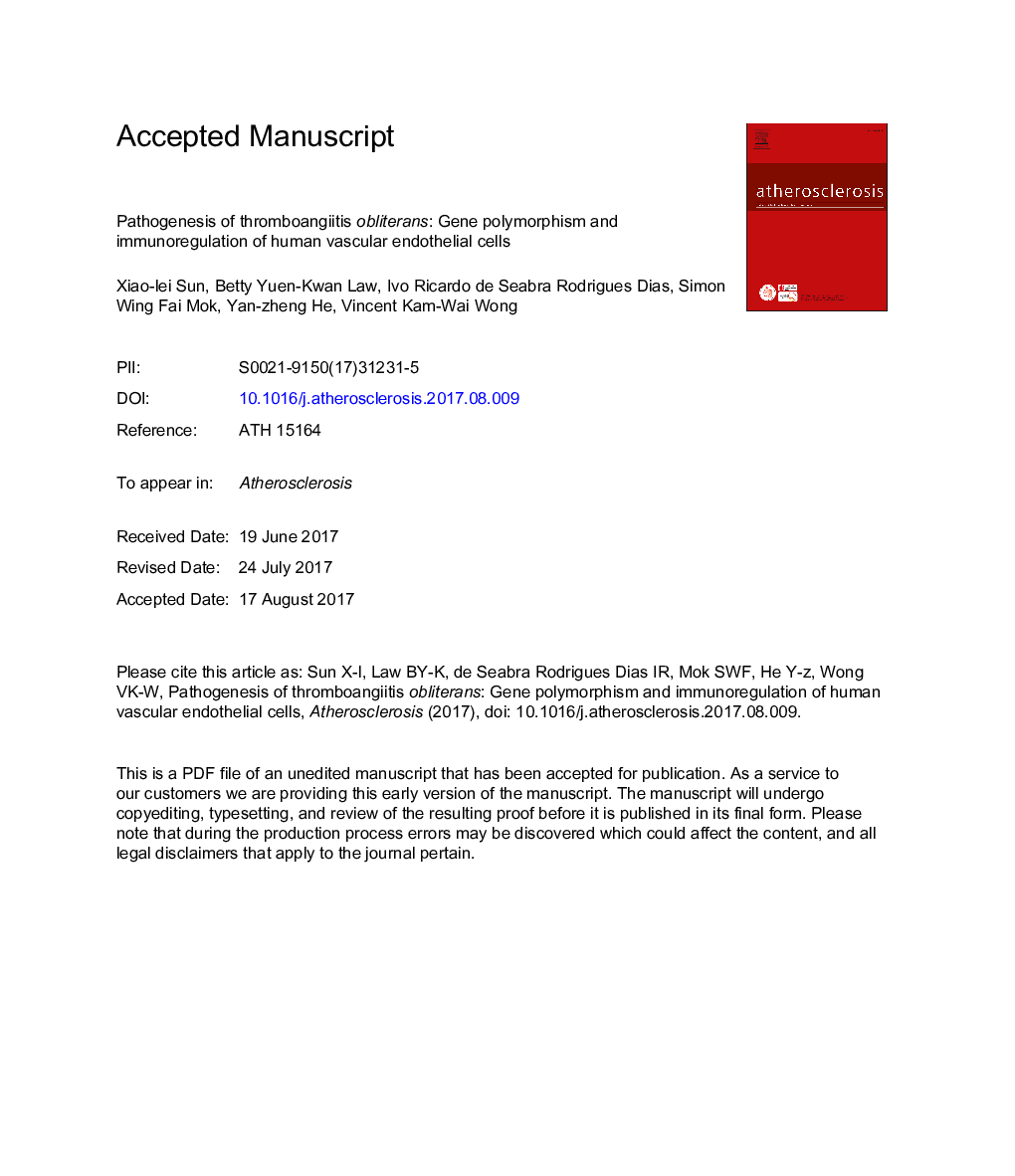| Article ID | Journal | Published Year | Pages | File Type |
|---|---|---|---|---|
| 5599524 | Atherosclerosis | 2017 | 39 Pages |
Abstract
Thromboangiitis obliterans (TAO) is a nonatherosclerotic, segmental, inflammatory vasculitis, which commonly affects the small- and medium-sized arteries of the upper and lower extremities. Despite its discovery more than a century ago, little progress has been made in its treatment. Unless the pathogenesis is elucidated, therapeutic approaches will be limited. The purpose of this review article is to collate current knowledge of mechanisms for the pathogenesis of thromboangiitis obliterans and to propose potential mechanisms from a genetic and immunoreactive point of view for its inception. Therefore, we discuss the possibility that the pathogenesis of this disease is due to a type of gene polymorphism, which leads to an immunological inflammatory vasculitis associated with tobacco abuse, highly linked to T cells, human vascular endothelial cells (HVECs), and the TLR-MyD88-NFκB pathway, distinct from arteriosclerosis obliterans and other vasculitides.
Related Topics
Health Sciences
Medicine and Dentistry
Cardiology and Cardiovascular Medicine
Authors
Xiao-lei Sun, Betty Yuen-Kwan Law, Ivo Ricardo de Seabra Rodrigues Dias, Simon Wing Fai Mok, Yan-zheng He, Vincent Kam-Wai Wong,
